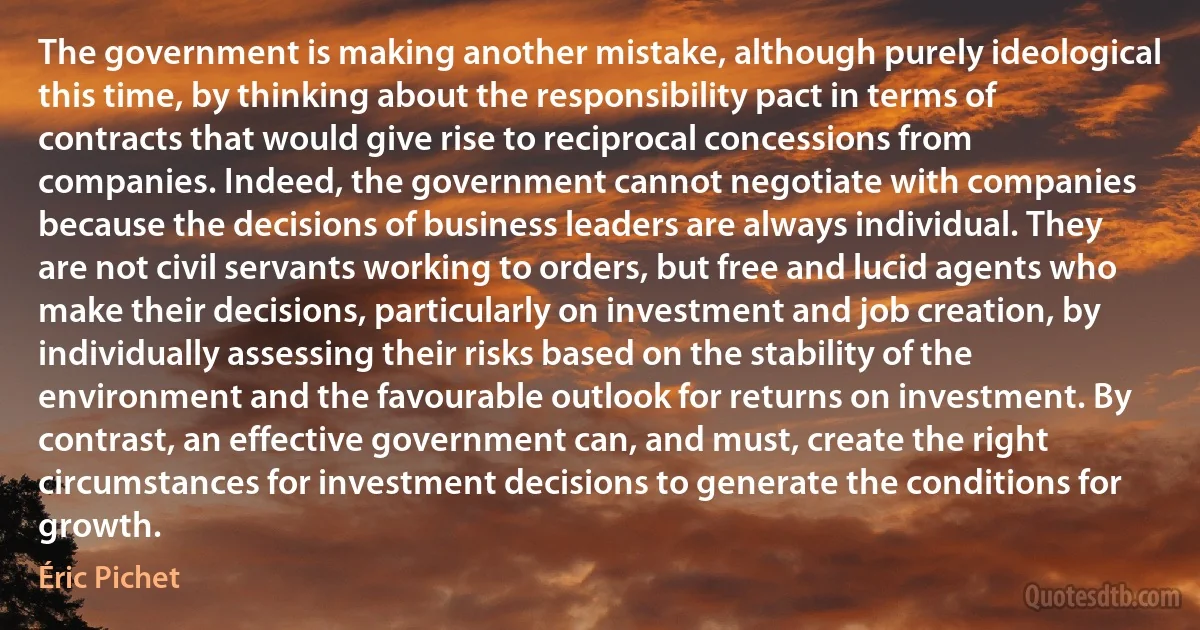Contrast Quotes - page 15
[Vathek] has, in parts, been called, but to some judgments, never is, dull: it is certainly in parts, grotesque, extravagant and even nasty. But Beckford could plead sufficient "local colour" for it, and a contrast, again almost Shakespearean, between the flickering farce atrocities of the beginning and the sombre magnificence of the end. Beckford's claims, in fact, rest on the half-score or even half-dozen pages towards the end: but these pages are hard to parallel in the later literature of prose fiction.

William Thomas Beckford
There are two subcategories of holist called irredundant holists and redundant holists. Students of both types image an entire system of facts or principles. Though an irredundant holist's image is rightly interconnected, it contains only relevant and essential constitents. In contrast, redundant holists entertain images that contain logically irrelevant or overspecific material, commonly derived from data used to "enrich" the curriculum, and these students embed the salient facts and principles in a network of redundant items. Though logically irrelevant, the items in question are of great psychological importance to a "redundant holist", since he uses them to access, retain and manipulate whatever he was originally required to learn.

Gordon Pask
The actual past is brittle, ever-dimming + ever more problematic to access + reconstruct: in contrast, the virtual past is malleable, ever-brightening + ever more difficult to circumvent/expose as fraudulent. The present presses the virtual past into its own service, to lend credence to its mythologies + legitimacy to the imposition of will.

David Mitchell (author)
The great masters of modern analysis are Lagrange, Laplace, and Gauss, who were contemporaries. It is interesting to note the marked contrast in their styles. Lagrange is perfect both in form and matter, he is careful to explain his procedure, and though his arguments are general they are easy to follow. Laplace on the other hand explains nothing, is indifferent to style, and, if satisfied that his results are correct, is content to leave them either with no proof or with a faulty one. Gauss is as exact and elegant as Lagrange, but even more difficult to follow than Laplace, for he removes every trace of the analysis by which he reached his results, and studies to give a proof which while rigorous shall be as concise and synthetical as possible.

W. W. Rouse Ball
The one overlap between Sanders and Warren is their relative appeal to young people. This stands in contrast to Biden, for whom the greatest predictor of support is age. The older you are, the more likely you are to be ridin' with Biden. This suggests that the progressive tussle between Warren and Sanders is about more than a competition for Rep. Alexandra Ocasio-Cortez's (D-N. Y.) endorsement; it's really about the future of the party... Already, progressives are setting the pace for new and popular policy ideas. Reformer, or revolutionary? The policies may be similar, but the results could be dramatically different.

Elizabeth Warren
What had already been done for music by the end of the eighteenth century has at last been begun for the pictorial arts. Mathematics and physics furnished the means in the form of rules to be followed and to be broken. In the beginning it is wholesome to be concerned with the functions and to disregard the finished form. Studies in algebra, in geometry, in mechanics characterize teaching directed towards the essential and the functional, in contrast to apparent. One learns to look behind the façade, to grasp the root of things. One learns to recognize the undercurrents, the antecedents of the visible. One learns to dig down, to uncover, to find the cause, to analyze.

Paul Klee
The contrast between man's ideological capacity to move at random through material and metaphysical spaces and his physical limitations, is Uneven lengths and uneven angle-degrees of the point-rudder result in a deviating course. the origin of all human tragedy. It is this contrast between power and prostration that implies the duality of human existence. Half winged-half imprisoned, this is man!

Paul Klee
It's unlikely that any of those natural hazards will do us in within the next 100 years if we've already survived 100,000. By contrast, we are introducing, through human activity, entirely new types of dangers by developing powerful new technologies. We have no record of surviving those.

Nick Bostrom
ladies in muslin draped on porches at the fronts of their little houses.... shops bursting with fruit, and the contrast between the lively hum and the bustle of the offices with the immense black animal force... The black world I have not the time to explore; there are some real gifts of colour and drawing in these forests of ebony. It will seem amazing to live among white people when I get back to Paris. I love silhouettes so much, and these silhouettes walk.

Edgar Degas
Then came the journey up to London through Birmingham and the Black District, another lesson, which needed much more to be rightly felt. The plunge into darkness lurid with flames; the sense of unknown horror in this weird gloom which then existed nowhere else, and never had existed before, except in volcanic craters; the violent contrast between this dense, smoky, impenetrable darkness, and the soft green charm that one glided into, as one emerged - the revelation of an unknown society of the pit - made a boy uncomfortable, though he had no idea that Karl Marx was standing there waiting for him, and that sooner or later the process of education would have to deal with Karl Marx much more than with Professor Bowen of Harvard College or his Satanic free-trade majesty John Stuart Mill.

Henry Adams
[V]oluntary exchange among individuals held morally responsible under the rule of law creates both prosperity and an unparalleled diversity of human choices. Such a model also has been a precondition of individuation and freedom. By contrast, regimes of central planning create poverty and occasion ineluctable developments toward totalitarianism and the worst abuses of power. Dynamic free-market societies, grounded in rights-based individualism, have altered the entire human conception of liberty and of dignity for formerly marginalized groups. The entire "socialist experiment," by contrast, ended in stasis; ethnic hatreds; the absence of even the minimal preconditions of economic, social, and political renewal; and categorical contempt for both individuation and minority rights. Our children do not know this true comparison.

Alan Charles Kors
No contrast is greater than a man on the pinnacle, erect in stature, confident, supercilious; and the same man in the pit, bent, irresolute, and servile. Some observers insist that, in the pit, a man usually loses his moral principles; but, on the pinnacle, is virtuously inclined, sensitive of reputation, faithful of trusts.

Alexander Bryan Johnson
While a small domain (consisting of fifty or fewer objects) can generally be analyzed as a unit, large domains must be partitioned to make the analysis a manageable task. To make such a partitioning, we take advantage of the fact that objects on an information model tend to fall into clusters: groups of objects that are interconnected with one another by many relationships. By contrast, relatively few relationships connect objects in different clusters.
When partitioning a domain, we divide the information model so that the clusters remain intact... Each section of the information model then becomes a separate subsystem. Note that when the information model is partitioned into subsystems, each object is assigned to exactly one subsystem.

Sally Shlaer
The employee-oriented supervisor, in contrast to the production-oriented, or institution-oriented supervisor gives major attention to creating employee motivation. The specific ways in which he does this may vary from situation to situation, but they contribute to a supportive personal relationship between himself and his work group members.

Daniel Katz
If Darwin's discovery had been made in a Taoist or Shinto, Hindu or animist culture it would very likely have become just one more strand in its intertwining mythologies. In these faiths humans and other animals are kin. By contrast, arising among Christians who set humans beyond all other living things, it triggered a bitter controversy that rages on to this day.

John N. Gray
In Kleist's essay humans are caught between the graceful automatism of the puppet and the conscious freedom of a god. The jerky, stuttering quality of their actions comes from their feeling that they must determine the course of their lives. Other animals live without having to choose their path through life. Whatever uncertainty they may feel sniffing their way through the world is not a permanent condition; once they reach a place of safety, they are at rest. In contrast, human life is spent anxiously deciding how to live.

John N. Gray
Holism [is] the art - in contrast with reductionism - of seeing a complex system as a whole. Holism knows the limits to its understanding; it acknowledges that the system has its wildness, its privacy, its own reasons, its defences against invasive explanation ... It does not pretend to understand the whole school just on the evidence of dissecting the geography teacher.

David Fleming



